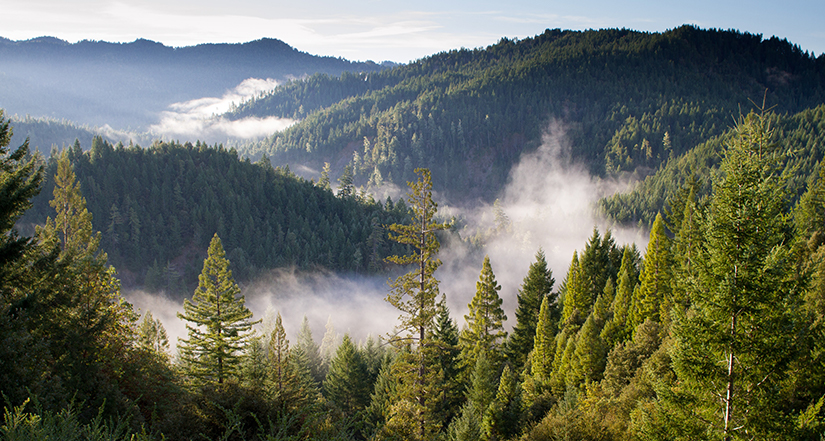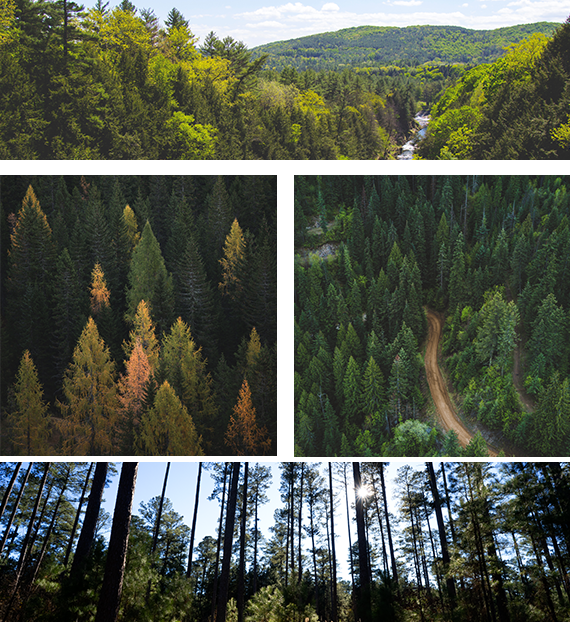You’ve probably heard packaging and paper companies’ claim that because their business depends on the sustainability of forests, they operate in a way that actually supports forest growth. But maybe you’ve also heard that it’s best to “go paperless” because using paper depletes the world’s forests. So which is it? Let’s take a look at the facts.
How does demand for forest products lead to more forestland?

Why does this matter?
Trees are a renewable resource. Many climate experts believe that a responsibly managed forest offers one of the least expensive and best ways to mitigate climate change. A single acre of 15-year-old loblolly pine in the South Central U.S., for example, can capture approximately 10 tons of carbon dioxide and release approximately 7 tons of oxygen per acre per year.1; 2
The global population is expected to reach 10 billion by 2050, thus the demand for forest products is likely to increase. Products sourced from healthy, working forests can help meet people’s needs for fiber-based products, and the whole world can benefit from the environmental assets that forests naturally provide, including animal habitat, recreation, air quality, and carbon sequestration.
Reforestation and the productive use of landscapes…could be the largest single natural lever we have for carbon storage.– The Nature Conservancy
The forest product industry’s commitment to responsible forestry, along with consumer demand for fiber-based products, ultimately generates an economic incentive for forestlands to continue to thrive. And because of trees’ unique ability to capture and store carbon, the forest sector lies at the heart of the necessary transition to a low-carbon future. It’s about the whole planet, and the future of forests depends on managing existing forests responsibly to ensure their economic, social, and environmental benefits for generations to come.
International Paper’s Commitment to Sustaining Forests
The forest products industry is 100 percent dependent on the sustainability of forests. We have a huge responsibility to ensure our fiber-based products come from responsibly managed sources.
Here is how International Paper, one of the world’s largest paper and packaging business, is leading the way:

- International Paper will not knowingly accept fiber from illegally logged forests or from forests where high conservation values are threatened by management activities.
- Globally, the company follows a Certification Policy and a Responsible Fiber Procurement Policy that addresses responsible fiber procurement and forest and fiber certification practices through recognition of credible third-party standards. See more on our third-party certifications here.
- The soil, water, biodiversity, climate, cultural, economic and recreational values of healthy forests benefit the planet and communities far beyond our own supply chains. As one of the world’s largest users of wood fiber, we work collaboratively with national and global forest conservation organizations to aid their efforts and to develop actions that improve our own procurement practices. Learn more about our strategic collaborations in our Global Citizenship Report and see how they are helping us achieve our Vision 2030 goal of healthy and abundant forests.
Key Takeaway
Know that the paper products you buy or consume from International Paper:
- Are made from renewable resources
- Support responsibly managed forests
- Help to ensure forestland remains forested
- Are a sustainable choice
Additional Resources
Downloads, fact sheets, reports and more.
FAQs
Answers to frequently asked questions about forestry, paper, packaging and pulp
Does Using Paper Products Kill Trees?
How responsibly produced paper products actually keep forests forested
Learn MoreAre Recycled Paper Products Always Better for the Planet?
Recycling is only part of the sustainability equation
Learn More